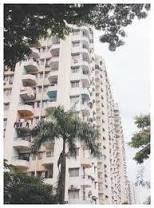
Important issues and frequently asked questions
STRATA-type property is and has been all the rage. It is also expected to be "the living model" if not already.
Whether in cosmopolitan cities or suburban fringes, and as space becomes "in want" and prices hike, we feature our final article on strata-related property highlighting pertinent questions frequently asked to which Chris Tan (CT) gives input on.
Q:
What should one look out for in the S&P before deciding on buying a particular strata-titled residential property?
CT: Buying a strata title property is not just buying a property but buying into a community living regulated by law. As a buyer, you are not only responsible for your very own unit but also the common property within the development too.
There is an ongoing obligation to pay the monthly service charges and sinking fund until the day you sell the same to another owner.
Besides the S&P Agreement, you are normally expected to sign the Deed of Mutual Covenants too, that regulates the relationship of the many owners within the same development with house rules vis-a-vis the prescribed by-laws under the Strata Management Act. In addition to the compliance with these rules, you are also expected to participate in the management of the common property at the Annual General Meeting as well as the Extraordinary General Meeting.
In the completion of the S&P Agreement, do ensure that the seller has no more outstanding charges and sinking funds owing the management and that the deposits paid are to be adjusted accordingly.
Q:
Can you please explain further on 'share units' of strata-titled property? How does this affect a residential strata-titled property owner or what is the relation between the owner and the share units?
CT: Share unit has always been there in strata living as it will be stated in the strata title upon its issuance. It is now capturing the limelight, given that it is now the basis to be contributed into the maintenance charges and not the usual rate psf of the size of your main parcel.
There are different 'weightages' for the main parcel, the accessory parcel and the type of usage to make up the various elements of the share unit.
Suffice to say that two units of apartments of the exact same size might have different share unit allocation, if one has more accessory parcels than the other, or one is of commercial usage while the other is residential.
Q:
What are some current and common issues faced by owners of strata-titled residential property and how would these be best settled?
CT: Issue 1: Contribution to service charges and sinking funds from the owners have always been done on the total size (in sf.) of the main parcel. Under the new regime since June 2015, it should now be based on per share unit instead.
Share unit is a concept that takes into account the size and the usage (of different allocated weight) of both the main parcel as well as the accessory parcel. It's stated clearly in the strata title when it is issued. It is also the basis of voting by poll if so requested in any General Meeting. Share unit is therefore now the basis of both contribution and control as opposed to just control in the past.
In theory, it should be a fair method for all. The issues are:
(i) Some strata owners find themselves paying more than before while some strata owners now pay less; and
(ii) The Share unit allocation under the previous legal regime was a result of consultation and discretion and not as transparently guided under the new law. It is a difficult process and to adjust again, particularly when the strata titles have been issued, will be tedious.
Issue No. 2: In Phased Development there is now a requirement to file the Schedule of Parcels (SOP) stating clearly the total share units to be offered under the entire development before one can proceed to sell. It therefore includes the later phases of a development that will only be developed in the future.
The issue is that this SOP can only be adjusted if we can get 100% of the owners to agree or it is a direction from the authority.
There will be no flexibility accorded to the developer who might want to change the SOP for the feasibility or sustainability of the development, taking into account the new circumstances of the future, in the best interest of the entire development.
Another related issue would be on the contribution of the allocated share units by the developer for yet to be developed phase in the maintenance of the common property already built and delivered.
Q:
Any other 'surprises' or areas of concern that many strata-titled residential property owners are unaware of until after purchase of such residents?
CT: Don't be surprised if the property does not come with an allotted car park, although it is a norm to expect a car park to come with the unit. It is not always the case.
Q:
Like many busy owners of a strata-titled property who do not have the time to sit in at resident's meetings with the management body – many have simply 'gone with the flow' of things as 'questions/disputes' require time for discussion.
What would you recommend for busy individuals who have 'no time' to attend such meetings but can only look at the annual/bi-annual strata/building management statements/financial reports? What should one keep an eye out for in these financial statements?
Why is it important to attend these meetings; what would owners be losing out on by not attending and being an 'active owner'?
CT: It is a regulated community living and participation is expected of every owner.
Although many have chosen to be passive, you need to participate or run the risk of letting major decisions lay in the hands of the active few.
You should keep an eye to ensure that the charges collected are well spent, that collection should always be monitored and the performance of the appointed property manager.
Also, understand your rights and obligations as a strata owner is important, and ensure that you and your neighbors are equally aware of the same too.
Q:
As a tenant, and not the owner of the 'parcel' – are they bound to all the By-laws?
CT: The by-laws, additional by-laws and amendment of such additional by-laws made by the Management Body shall not only bind the owners but also the tenants, chargess, lessees and occupiers.
Q:
Any other important issues that you would like to highlight to readers of theSun?
CT: Moving forward, strata living will be the preferred way of community living. Take a keen interest to learn and understand this living model in order to get the most out of it.
There are many more frequently asked questions, especially on management bodies, by-laws and leakage and defects. Answers to these can be found in Chris Tan's Owner's Manual & Guidebook.
Follow our property column next Friday for more insights on the market in the local scene.
Source: Thesundaily
Related articles
Related posts:
Aug 11, 2015 ... There are (or will soon be) more people living in high-rise strata ... New
beginning in ... Managing strata properties in Malaysia Sep 11, 2012
|
Aug 23, 2015 ... IF you live in a high rise building and have an inter-floor leakage issue, you ...
occurs during the defects liability period, and which the housing developers ... By
-laws governing strata property management in Malaysia, part 1
Aug 27, 2015 ... By-laws governing strata property management in Malaysia, part 2. General ...
Cheers for high-rise house buyers GEORGE TOWN: The state ...


May 28, 2015 ... There are (or will soon be) more people living in high-rise strata ... New
beginning in ... Managing strata properties in Malaysia Sep 11, 2012

Dec 22, 2012 ... There are (or will soon be) more people living in high-rise strata properties than
in landed properties, given the rapid urbanisation and rising ...

Sep 11, 2012 ... ... engineers, architects, shopping and high-rise complex managers,
management corporations ... Though building owners (JMBs and MCs) and Real
Estate Investment Trusts ... Building Management Association of Malaysia.
Jun 15, 2011 ... "It's similar to the drive that was extended to unlicensed real estate agents ...
working at the high-rise apartment block where Liew See Lanlives.

Aug 19, 2015 ... “We are pleased to make our first direct real estate investment in ... it had set a
record of sorts for pricing its high-rise serviced residential units of ...
|





